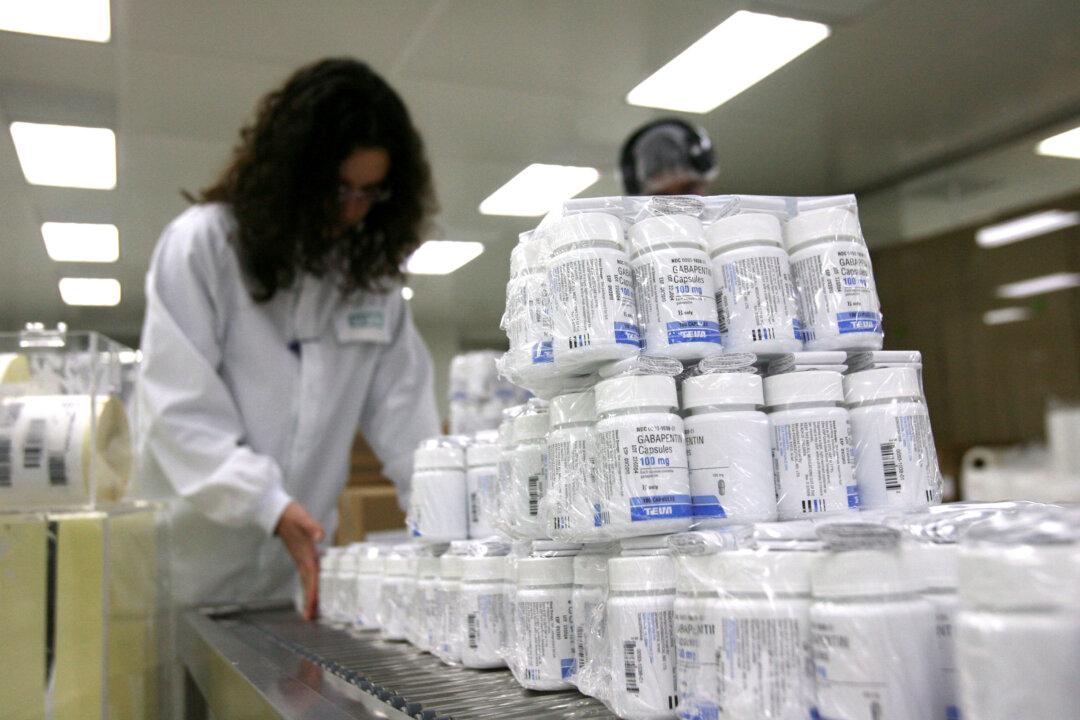Medicine shortages are “around double what they were a year ago,” raising concerns with drug manufacturers and distributors, a pharma CEO has revealed.
Mark Samuels, chief of British Generic Manufacturers Association (BGMA), told the Health and Social Care Committee on Monday that his organisation had been monitoring the situation for several years and that “shortages have increased” to “around double what they were a year ago.”
“We have them at 101 shortages in February this year,” Mr. Samuels said, adding that the BGMA had highlighted the shortage to ministers since July 2021.
“We’re concerned about it,” he said.
Domestic Drugs Manufacturing Resilience
When asked what could be done to rectify the drugs shortages problem, Mr. Samuel suggested that programmes which encourage domestic drugs manufacturing should have supply chain resilience made a “top priority.”He also raised concerns over domestic manufacturing and the effects of the EU-UK Trade and Cooperation Agreement (TCA), which he said was “catastrophic” for UK generic drugs manufacturing.
The BGMA chief told MPs that the EU agreement “substantially incentivises manufacturing in the EU, and the current agreement hugely disincentivises investment in UK generic manufacturing. Since the TCA was formed, we have seen our members invest over £4 billion in new manufacturing facilities in the EU, and around zero in the UK.”
“This is merely a discussion about the agreement itself,” he stressed, not about Brexit, continuing: “We could have left the EU with a different agreement. The TCA, as it currently stands is catastrophic for UK generic manufacturing.”
‘Serious Concern’ Over Impact of Drugs Shortages on Diabetics
The committee’s third session of the pharmacy inquiry heard evidence on the impact of medicine shortages on patients, particularly on those with type 2 diabetes.MPs had heard that there was “serious concern” about the potential harm to people with the condition due to a shortage of drugs.
Last month, the NHS published a National Patient Safety Alert in relation to a shortage of a range of drugs—GLP-1 RAs—which help type 2 diabetes patients manage their blood glucose levels. The alerts warned that supplies are not expected to return to normal “until at least the end of 2024.”
Helen Kirrane, head of policy, campaigns and mobilisation at Diabetes UK, told the Health and Social Care Committee on Monday that the shortage of GLP-1 has been having a “huge impact” on people living with the condition over the past six to eight months.
Ms. Kirrane said that while the consequences of the shortages might not come to light for some time, there is “serious concern about the harm that could be caused.”
Critical Imports Council Will ‘Build Supply Chain Resilience’
Global issues such as the COVID-19 pandemic, Russia’s invasion of Ukraine, and attacks by Houthi rebels on ships in the Red Sea have affected UK supply chains in recent years.“There are many unpredictable events that can threaten our access to vital goods, from the pandemic, Russia’s illegal war in Ukraine, and the ongoing attacks in the Red Sea. That’s why we’re taking action to ensure crucial imports like medicines can reach consumers, no matter what happens around the world,” Minister for Industry and Economic Security Nusrat Ghani said last month.







